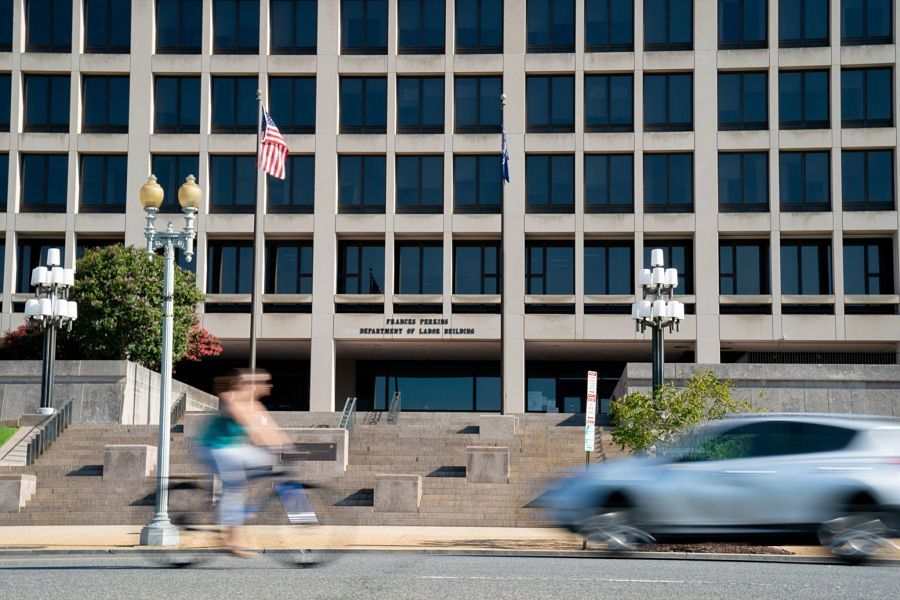The Department of Labor released a final regulation Friday that could curb the use of socially responsible investing in retirement plans, although the text of the rule was revised to take out references to environmental, social and governance factors.
The regulation, first introduced in June and then opened for a 30-day comment period, has been on a fast track for approval before the end of the first Trump administration.
It drew more about 8,700 public comments, the vast majority in opposition. Critics assert the rule will chill increasingly popular ESG investing in company-sponsored retirement accounts.
The rule amends the investment duties regulation of federal retirement law, which has been in place since 1979. It requires plan fiduciaries to select investments and strategies based solely on how they will affect the plan’s financial performance, or so-called pecuniary goals.
“This rule will ensure that retirement plan fiduciaries are focused on the financial interests of plan participants and beneficiaries, rather than on other, non-pecuniary goals or policy objectives,” Labor Secretary Eugene Scalia said in a statement.
Fiduciaries should not sacrifice returns, increase risks or raise costs of a plan in order to pursue nonpecuniary objectives, such as environmental, social and governance investing, agency officials told reporters.
PECUNIARY, NOT ESG
But the final regulation was revised to take the term “ESG” out of the rule text; it is discussed in the preamble. The rule language concentrates on whether an investing factor is pecuniary or nonpecuniary, said Jeanne Klinefelter Wilson, acting assistant secretary of labor for the Employee Benefits Security Administration.
Pecuniary is defined as any factor that a fiduciary determines will have a material effect on risk and return based on an investment’s timeline, Wilson said.
[More: Labor Department moves at ‘warp speed’ on ESG rule]
“That does not mean that fiduciaries are prohibited from considering such issues as environmental impact and workplace practices if they are relevant to the financial analysis because those issues are pecuniary in that instance and therefore appropriate considerations under the rule,” Wilson said.
The final rule contains several other revisions from the proposal, such as deleting the requirement that an ESG fund may only be selected if the fiduciary uses objective risk-return criteria, said a DOL senior official. The final rule removes the blanket prohibition on any fund that uses ESG factors from being a qualified default investment alternative and makes the exclusion less restrictive.
The changes don’t go far enough to satisfy opponents of the rule.
“We don’t see a substantial change between the proposal and the final rule,” said Bryan McGannon, director of policy and programs at US SIF, The Forum for Sustainable and Responsible Investing. “It creates this fog over how DOL will interpret nonpecuniary. That confusion is going to lead plan fiduciaries to reconsider whether or not to include ESG options in their plans.”
Despite the changes in the final rule, the DOL continues to undermine socially responsible investing in retirement plans, said Aron Szapiro, head of policy research at Morningstar.
“They’re still pretty hostile to the idea of ESG factors being something plan sponsors should consider,” Szapiro said.
OPPONENTS KEEP UP FIGHT
The rule will become effective 60 days after it’s published in the Federal Register. But opponents will continue to fight it.
“It is a priority for U.S. SIF to reverse this rule,” McGannon said.
The group will consider a court challenge and promote legislative responses, McGannon said.
Critics say the Trump administration’s support of the fossil fuel industry contributed to its push to get the DOL ESG rule over the finish line. If Democratic presidential candidate Joe Biden defeats Trump and Democrats take over the Senate in next week’s election, the rule could be vulnerable to being overturned.
Once the rule is published in the Federal Register, a Biden DOL would have to commence a new rulemaking to replace it, said Susan Dudley, director of the George Washington University Regulatory Studies Center.
But a lawsuit or a vote in Congress to scuttle the rule could speed the demise of the rule.
“The fact they got so many comments suggest they’ll be sued,” Dudley said. ‘The court system would help [the Biden administration] put implementation on hold.”
One of the complaints in a legal challenge could be that the DOL rushed the rulemaking process. A DOL senior official disputed that notion.
“We did carefully consider every single written comment in formulating the rule, and that’s evident in the changes,” the official said.








